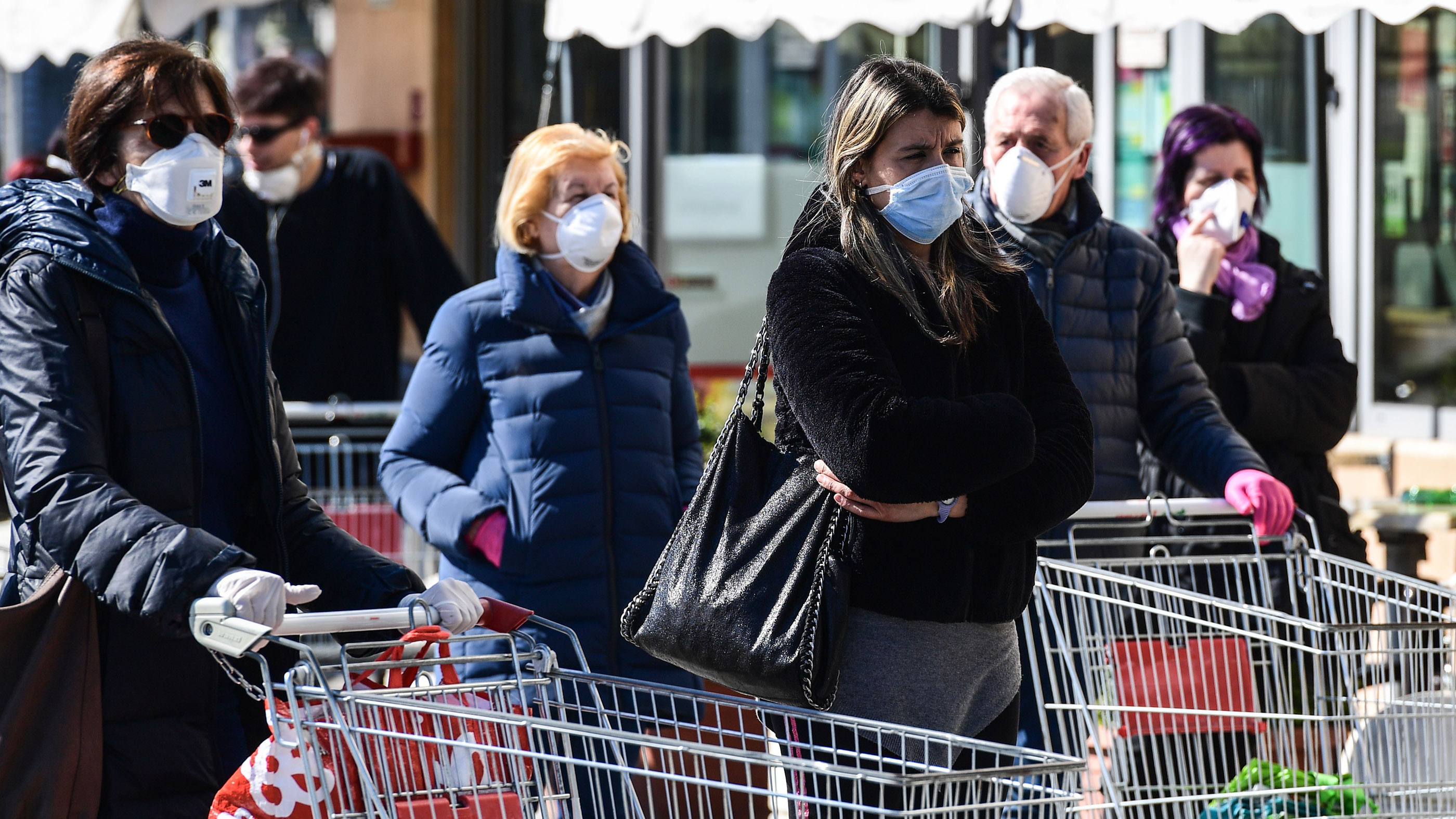
Up to 25% of people with COVID-19 may not show symptoms
The data is prompting the CDC to reconsider who should wear face masks.

A significant portion of COVID-19 patients may never show coronavirus symptoms at all — a key factor aiding the spread of the virus, according to a top U.S. health official.
As many as 25% of people infected with the new coronavirus remain asymptomatic, Dr. Robert Redfield, director of the Centers for Disease Control and Prevention, told NPR this week.
"That's important, because now you have individuals that may not have any symptoms that can contribute to transmission," Redfield said.
What's more, even if people do get sick, they may shed the virus up to 48 hours before they show symptoms, Redfield added. "This helps explain how rapidly this virus continues to spread across the country, because we have asymptomatic transmitters and we have individuals who are transmitting 48 hours before they become symptomatic," Redfield said.
—Coronavirus in the US: Map & cases
—What are coronavirus symptoms?
—How deadly is the new coronavirus?
—How long does coronavirus last on surfaces?
—Is there a cure for COVID-19?
—How does coronavirus compare with seasonal flu?
—How does the coronavirus spread?
—Can people spread the coronavirus after they recover?
Recent studies from other countries also show that asymptomatic transmission of COVID-19 is likely occurring. For example, a study published today (April 1) in the CDC journal Morbidity and Mortality Weekly Report found that, of the more than 150 non-travel-related COVID-19 cases in Singapore, 6.4% appeared to involve asymptomatic transmission. In another study, published March 19 in the journal Emerging Infectious Diseases, scientists reviewed data on COVID-19 in China outside of Hubei province, and found that 12.6% of cases appeared to involve asymptomatic transmission.
In light of this data on asymptomatic spread, the CDC is "aggressively" reviewing its recommendations on the use of face masks and whether people should wear them if they don't have symptoms, Redfield said. Currently, the agency recommends face masks only for health care providers and people who are sick with COVID-19.
Still, there is a concern that such a recommendation could reduce the supply of face masks for health care workers who desperately need them.
Get the world’s most fascinating discoveries delivered straight to your inbox.
"The thing that has inhibited [a broader recommendation] a bit is to make sure we don't take away the supply of masks from the health care workers who need them," Dr. Anthony Fauci, director of the National Institute of Allergy and Infectious Diseases, told CNN. "But when we get in a situation where we have enough masks, I believe there will be some very serious consideration about … broadening this recommendation of using masks. We're not there yet, but I think we're close to coming to some determination."
- The 12 deadliest viruses on Earth
- 20 of the worst epidemics and pandemics in history
- 11 surprising facts about the respiratory system
Originally published on Live Science.
The one-month trial gives you access to all of the educational site's 9,000 activities in reading, science, math and art. Keep your child busy and learning while we are all stuck indoors.

Rachael is a Live Science contributor, and was a former channel editor and senior writer for Live Science between 2010 and 2022. She has a master's degree in journalism from New York University's Science, Health and Environmental Reporting Program. She also holds a B.S. in molecular biology and an M.S. in biology from the University of California, San Diego. Her work has appeared in Scienceline, The Washington Post and Scientific American.
 Live Science Plus
Live Science Plus






